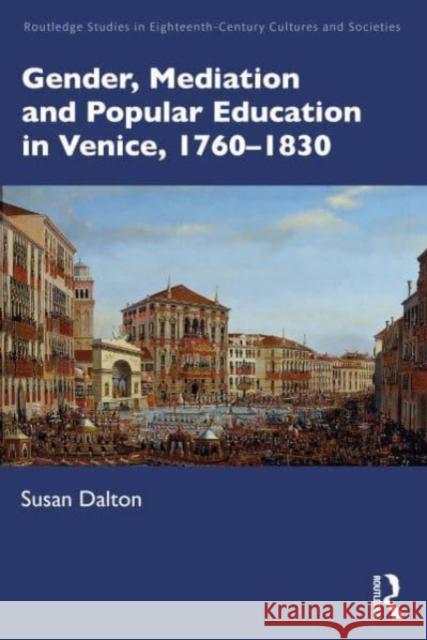Gender, Mediation and Popular Education in Venice, 1760–1830 » książka
Gender, Mediation and Popular Education in Venice, 1760–1830
ISBN-13: 9781032190969 / Angielski
Gender, Mediation and Popular Education in Venice, 1760–1830
ISBN-13: 9781032190969 / Angielski
(netto: 665,62 VAT: 5%)
Najniższa cena z 30 dni: 680,04 zł
ok. 16-18 dni roboczych.
Darmowa dostawa!
Gender, Mediation and Popular Education in Venice, 1760–1830 examines how women with enough cultural capital could turn their identity as representatives of "the public" – those on the receiving end of education – to their advantage, producing knowledge under the guise of relaying it.
Gender, Mediation and Popular Education in Venice, 1760–1830 examines how women with enough cultural capital could turn their identity as representatives of "the public" – those on the receiving end of education – to their advantage, producing knowledge under the guise of relaying it.
Author Susan Dalton looks at the question of how elite women turned their reputation for ignorance into an opportunity to establish themselves as authors at the dawn of the nineteenth century in Venice. Many literary figures saw women as a group in need of education. By deploying essentialist understandings of femininity, whereby women possessed superior moral virtue but deficient rationality, these women entered the publishing world as cultural mediators, identified by contemporaries as key players in the social projects of public education and moral edification central to the European Enlightenment. Focussing on Isabella Teotochi Albrizzi and Giustina Renier Michiel, both renowned Venetian authors, the author introduces two well-known Italian women of letters to English-speaking scholars; re-evaluates the impact of their writing in Italy and raises questions about female authorship across Europe; broadens our conceptions of gender norms; and enriches our knowledge of a little-known period of women’s writing in Italy.
This volume is an essential resource for students and scholars alike interested in women’s and gender history, early modern history and social and cultural history.











